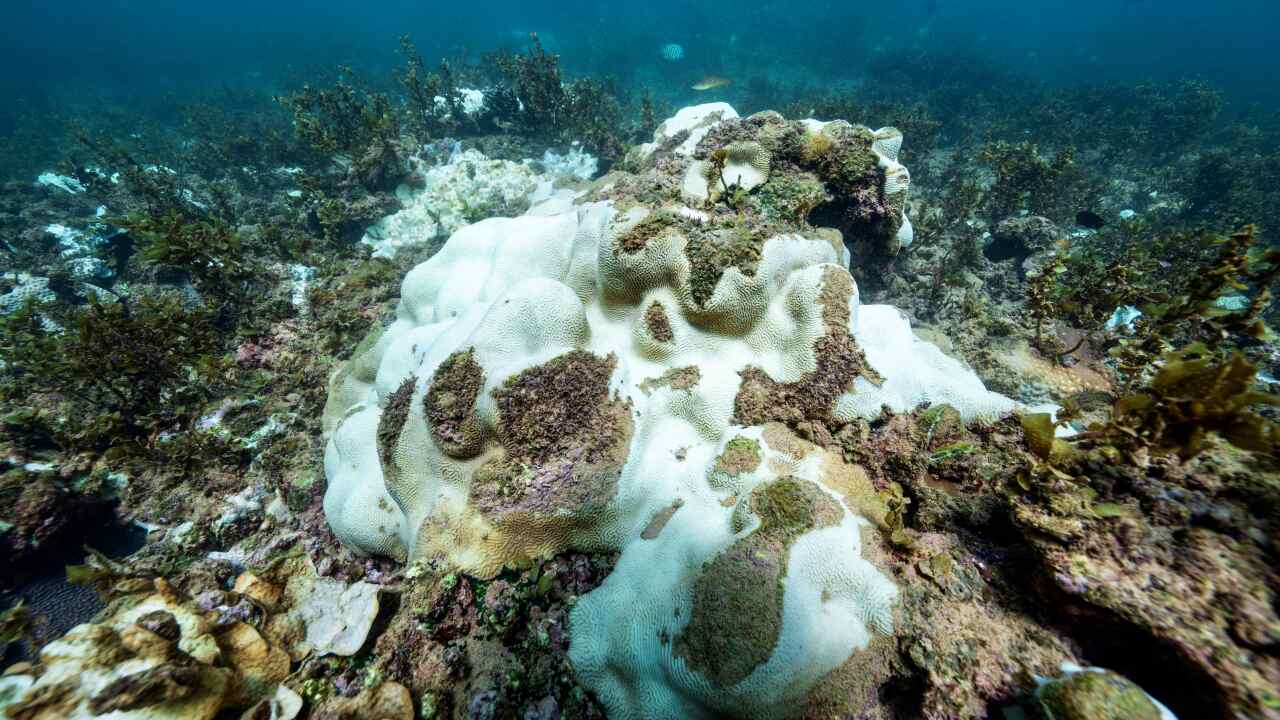While researchers are still assessing the full extent of the damage wrought by a marine heatwave, The Australian Institute of Marine Science has confirmed the most widespread bleaching on record for Western Australia.
The institute's senior research scientist James Gilmour, said: "The length and intensity of the heat stress, and its footprint across multiple regions, is something we've never seen before on most of the reefs in WA."
"Areas which had given us hope because they'd rarely or not bleached before, like the Rowley Shoals, north Kimberley and Ningaloo, have been hit hard this time."
Sensitive to heat stress, corals expel the algae living in their tissues in warm water, causing the coral to go pale.
Bleaching is not always fatal, but if underwater heat is prolonged and severe, corals can die.
Sea surface temperatures around Australia last summer were the warmest on record since 1900, with coral heat stress peaking in January.
Conditions varied across the tropical reefs spanning 1,500km — from "extreme", or 90 per cent bleached or dead, to "medium", somewhere between 11 per cent and 30 per cent.
Mermaid and Clerke reefs in the Rowley Shoals, 300km west of Broome, recorded "very high" levels of mortality, between 61 per cent and 90 per cent.
The World Heritage-listed Ningaloo Reef, known for its whale sharks, experienced "high" bleaching and mortality between 31 per cent and 60 per cent.
Gilmour said climate change was driving the increased frequency and severity of mass coral bleaching events and giving them little time to recover between events.
"They need 10 to 15 years to recover fully," he said.
"The key to helping coral reefs survive under climate change is to reduce greenhouse gas emissions," Gilmour said.
Improving water quality and cracking down on overfishing can also support reef health.
The Great Barrier Reef has also been under pressure, experiencing the largest-ever annual decline in coral cover in two of its three regions in 2024.
Heat stress was largely responsible, with predator outbreaks and cyclones also damaging the expansive ecosystem.
The updates on coral health land ahead of the expected release of the federal government's 2035 climate goals, due in September under the Paris Agreement rules.
For the latest from SBS News, download our app and subscribe to our newsletter.

